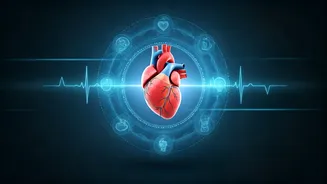Control Sodium Intake
One of the primary methods to naturally reduce high blood pressure is to minimize sodium consumption. A cardiologist recommends limiting sodium intake
to help improve your blood pressure. This means being mindful of the amount of salt used in cooking and food consumption, including processed foods, fast foods, and ready-made meals. The goal is to replace high-sodium items with fresher options and seasonings that enhance flavor without over-relying on salt. This approach is integral because excessive sodium can lead to the body retaining fluid, thereby increasing blood pressure. Implementing this lifestyle change can make a substantial difference in your cardiovascular health.
Boost Potassium Levels
Increasing potassium intake is another impactful way to help manage blood pressure naturally. Potassium helps balance the effects of sodium, which is crucial for maintaining healthy blood pressure. A cardiologist suggests incorporating potassium-rich foods into your diet, such as bananas, sweet potatoes, spinach, and beans. These foods not only provide potassium but are also often part of a balanced diet with other nutrients. By increasing potassium intake, the body can effectively remove excess sodium and relax blood vessel walls, both of which can lead to a reduction in blood pressure. This dietary adjustment is an important step toward improving heart health.
Limit Alcohol, Tobacco
The cardiologist emphasized the importance of minimizing alcohol and tobacco consumption for healthy blood pressure levels. Both alcohol and smoking can elevate blood pressure, posing risks to cardiovascular health. Excessive alcohol intake can directly increase blood pressure, while nicotine from smoking damages blood vessels and increases the risk of heart disease. Cutting back on alcohol and quitting smoking are vital steps toward improving heart health. It is also recommended to speak to a healthcare provider about strategies and resources, such as support groups or nicotine replacement therapy, to effectively eliminate these harmful habits and improve your overall health.
Regular Physical Activity
Engaging in regular physical activity is also a key component in lowering blood pressure naturally. Cardiovascular exercise, such as brisk walking, jogging, swimming, and cycling, can help keep your heart healthy and regulate blood pressure. Aiming for at least 150 minutes of moderate-intensity aerobic exercise or 75 minutes of vigorous-intensity exercise per week is recommended by experts. Consistent physical activity helps strengthen the heart, improves blood flow, and reduces the risk of various heart-related ailments. Incorporating exercise into your daily schedule, even in small increments, can bring noticeable improvements in blood pressure over time. The benefits of regular workouts go far beyond just managing blood pressure, leading to better overall health.
Manage Stress Effectively
Stress management plays a crucial role in naturally lowering blood pressure. Chronic stress can trigger the body to release hormones that raise blood pressure. Finding healthy ways to manage stress can significantly help in preventing blood pressure spikes. This could involve relaxation techniques such as deep breathing exercises, meditation, or yoga. Engaging in hobbies, spending time in nature, or simply taking breaks throughout the day can also help relieve stress. By incorporating stress-reduction strategies into your daily life, you can not only lower your blood pressure but also enhance your overall mental and emotional well-being. A calm mind contributes greatly to a healthy heart.
Consider DASH Diet
The Dietary Approaches to Stop Hypertension (DASH) diet is a highly effective nutritional strategy for managing high blood pressure. It focuses on consuming foods rich in nutrients that are beneficial for heart health, such as fruits, vegetables, whole grains, and lean proteins. The DASH diet also encourages limiting saturated and trans fats, red meats, and added sugars. This eating plan helps lower blood pressure by increasing the intake of potassium, calcium, and magnesium, as well as reducing sodium intake. Adopting the DASH diet is a proactive step toward improving your blood pressure and cardiovascular well-being, offering a sustainable and flavorful approach to eating.
Regular Medical Check-ups
Regular check-ups with your doctor are also crucial for monitoring and managing blood pressure. Routine visits allow healthcare professionals to monitor your blood pressure levels and assess the effectiveness of any lifestyle changes or treatments you're using. These check-ups help identify potential problems early, and allow healthcare providers to make necessary adjustments to your care plan. It is important to consult with your doctor before starting any new treatments or making significant changes to your diet or exercise routine. Periodic monitoring ensures that any interventions are appropriate and beneficial, while also providing peace of mind. Regular check-ups are a cornerstone of proactive heart health management.












